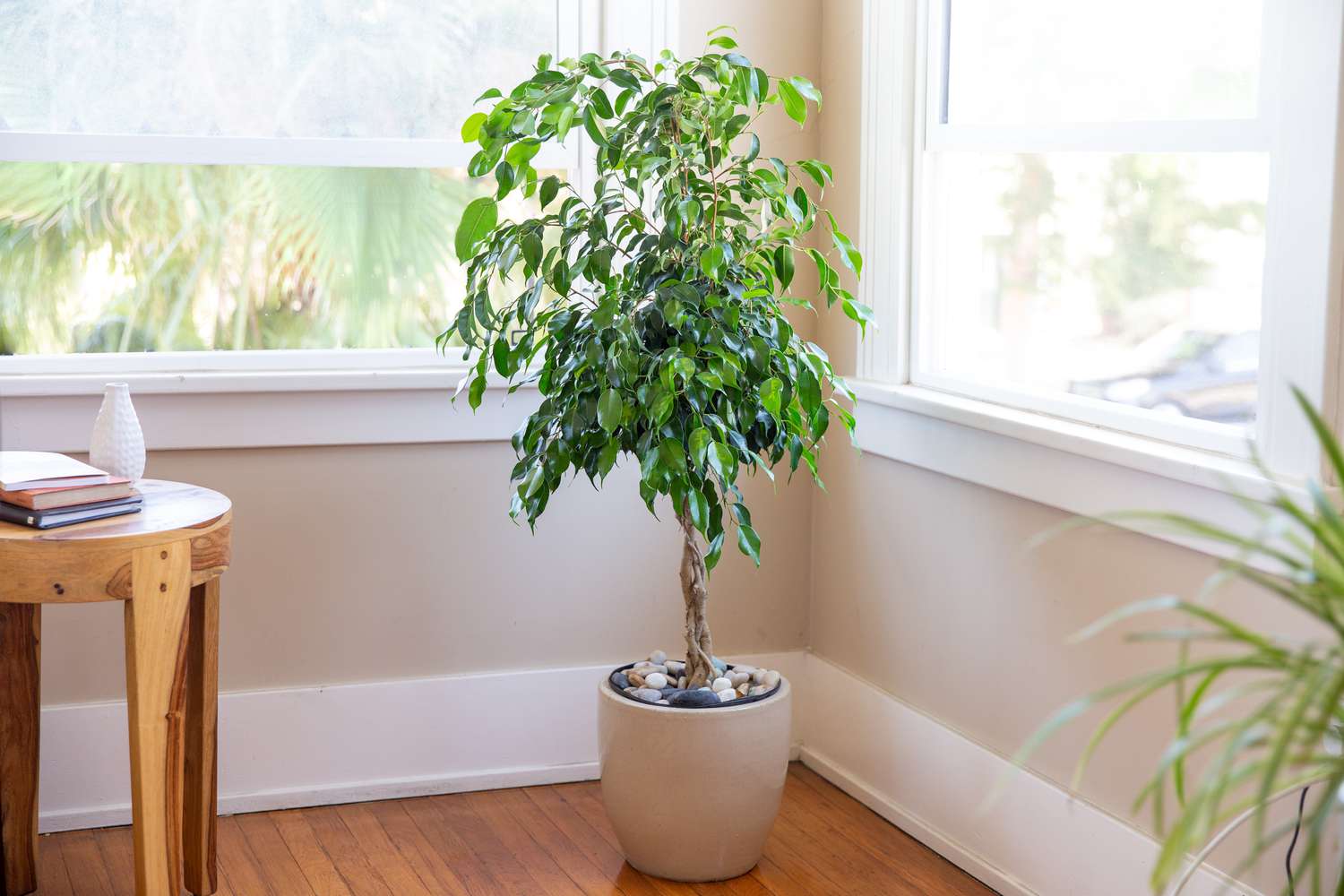
Ficus is a fascinating and versatile genus of plants that encompasses over 800 species. From towering trees to small ornamental plants, ficus plants can be found in various shapes and sizes, making them a popular choice among plant enthusiasts. Not only are they visually appealing, but they also offer a plethora of interesting facts worth exploring. Whether you are a seasoned gardener or simply have a green thumb, delving into the world of ficus plants will unveil a treasure trove of captivating information. In this article, we will uncover 11 intriguing facts about ficus plants that will enhance your knowledge and appreciation for these remarkable botanical wonders.
Key Takeaways:
- Ficus plants come in various shapes and sizes, from small houseplants to towering trees, and are known for their unique leaves and impressive lifespans. They can be grown indoors or outdoors, making them versatile additions to any space.
- Ficus plants have a fascinating pollination process involving specific wasp species and are used for traditional medicine in various cultures. They also have cultural and spiritual significance, being considered sacred in some regions and appearing in art, literature, and mythology.
Ficus is a genus of plants
Ficus is a genus of flowering plants in the family Moraceae. It includes about 800 species of trees, shrubs, and vines, many of which are commonly known as figs. These plants are found in various parts of the world, including tropical and subtropical regions.
Ficus plants have great diversity
The Ficus genus is incredibly diverse, with species ranging from small houseplants to large, towering trees. Some species have aerial roots that hang down from branches, while others form dense, leafy canopies.
Ficus plants are known for their unique leaves
Ficus plants are characterized by their distinctive leaves. They come in a variety of shapes, including oval, heart-shaped, and elongated. The leaves can be glossy or matte and may have unique patterns or variegations.
Ficus trees can live for hundreds of years
Many species of Ficus trees have impressive lifespans, often living for several hundred years. Some of the oldest Ficus trees in the world are revered as cultural and historical landmarks.
Ficus plants have a fascinating pollination process
Ficus plants have a unique relationship with specific wasp species. The fig wasps and the Ficus trees have a mutualistic symbiotic relationship, where the wasps help in pollination and the trees provide a protected environment for the wasp larvae to develop.
Ficus plants can be grown as indoor or outdoor plants
The versatility of Ficus plants makes them suitable for both indoor and outdoor cultivation. There are many popular indoor Ficus varieties that can thrive in a wide range of conditions, making them great additions to home or office spaces.
Ficus plants are used for traditional medicine
In various cultures, different parts of the Ficus plant have been used in traditional medicine. Extracts from the leaves, bark, or roots have been used for their anti-inflammatory, antimicrobial, and antidiabetic properties.
Ficus plants can improve indoor air quality
According to NASA’s Clean Air Study, certain species of Ficus plants have been found to remove harmful airborne pollutants like formaldehyde and benzene from indoor environments, making them excellent natural air purifiers.
Ficus plants are considered sacred in some cultures
In regions like India and Southeast Asia, Ficus plants, particularly the sacred fig (Ficus religiosa), hold significant religious and spiritual importance. They are often found near temples and are considered sacred by followers of various faiths.
Ficus plants are resilient and adaptable
Ficus plants possess a remarkable ability to adapt to different environments and thrive under various conditions. They are known for their resilience and can withstand moderate fluctuations in temperature and light levels.
Ficus plants have cultural significance
Ficus plants have made appearances in numerous works of art, literature, and mythology throughout history. They have been revered as symbols of fertility, strength, growth, and wisdom in many cultures around the world.
Conclusion
In conclusion, Ficus is an incredibly fascinating plant genus that offers a multitude of benefits and intriguing facts. From its wide variety of species to its ability to purify the air and improve indoor environments, Ficus is a popular choice for plant enthusiasts and homeowners alike.
With its unique abilities to withstand different climates and grow in diverse conditions, Ficus has become a symbol of resilience and adaptability. Moreover, its beautiful foliage and ability to efficiently absorb pollutants make it an excellent addition to any space.
Whether you’re looking to enhance your home decor, improve air quality, or simply indulge in the beauty of nature, Ficus is definitely a plant worth considering. So go ahead and bring a touch of greenery into your life with these intriguing and versatile plants.
FAQs
Q: How often should I water my Ficus plant?
A: Ficus plants generally prefer moderate watering. Allow the top inch of soil to dry out before watering again. It’s important not to overwater, as this can lead to root rot.
Q: Can I keep my Ficus plant indoors?
A: Yes, Ficus plants are well-suited to indoor environments. However, they still require adequate sunlight and should be placed near a window where they can receive indirect light.
Q: What is the best location for my outdoor Ficus plant?
A: Outdoor Ficus plants thrive in full or partial sunlight. Choose a location that provides sufficient light and where the plant can grow without being exposed to extreme temperatures or harsh winds.
Q: Do Ficus plants require any special care?
A: Ficus plants are relatively low-maintenance, but they do benefit from regular pruning to maintain their shape. Additionally, they can be sensitive to changes in their environment, so it’s best to avoid frequently moving them around.
Q: Are Ficus plants safe for pets?
A: While Ficus plants are not toxic to humans, they can cause digestive issues in pets if ingested. It’s advisable to keep Ficus plants out of reach of curious pets to avoid any potential problems.
Ficus plants captivate with their intriguing characteristics, but there's even more to explore in the world of fascinating flora. Delve into the alluring qualities of rubber plants, whose resilient nature and air-purifying abilities make them ideal houseplants. Sycamore fig trees also hold surprises, boasting a rich history and unique pollination process that sets them apart. For those seeking an elegant addition to their home or garden, weeping figs offer both beauty and adaptability, thriving in various environments. Uncover the extraordinary facts behind these remarkable plants and expand your botanical knowledge.
Was this page helpful?
Our commitment to delivering trustworthy and engaging content is at the heart of what we do. Each fact on our site is contributed by real users like you, bringing a wealth of diverse insights and information. To ensure the highest standards of accuracy and reliability, our dedicated editors meticulously review each submission. This process guarantees that the facts we share are not only fascinating but also credible. Trust in our commitment to quality and authenticity as you explore and learn with us.


